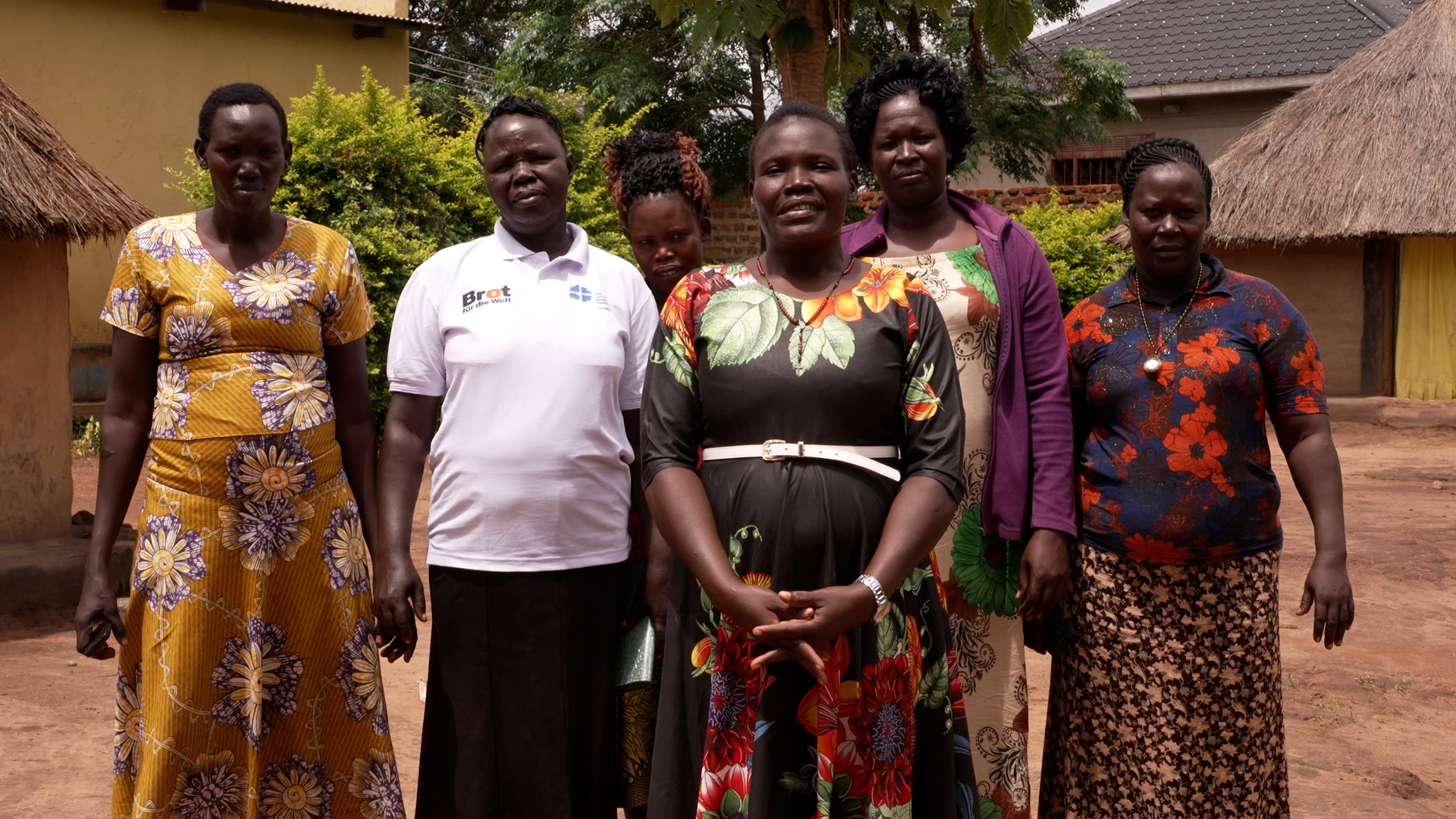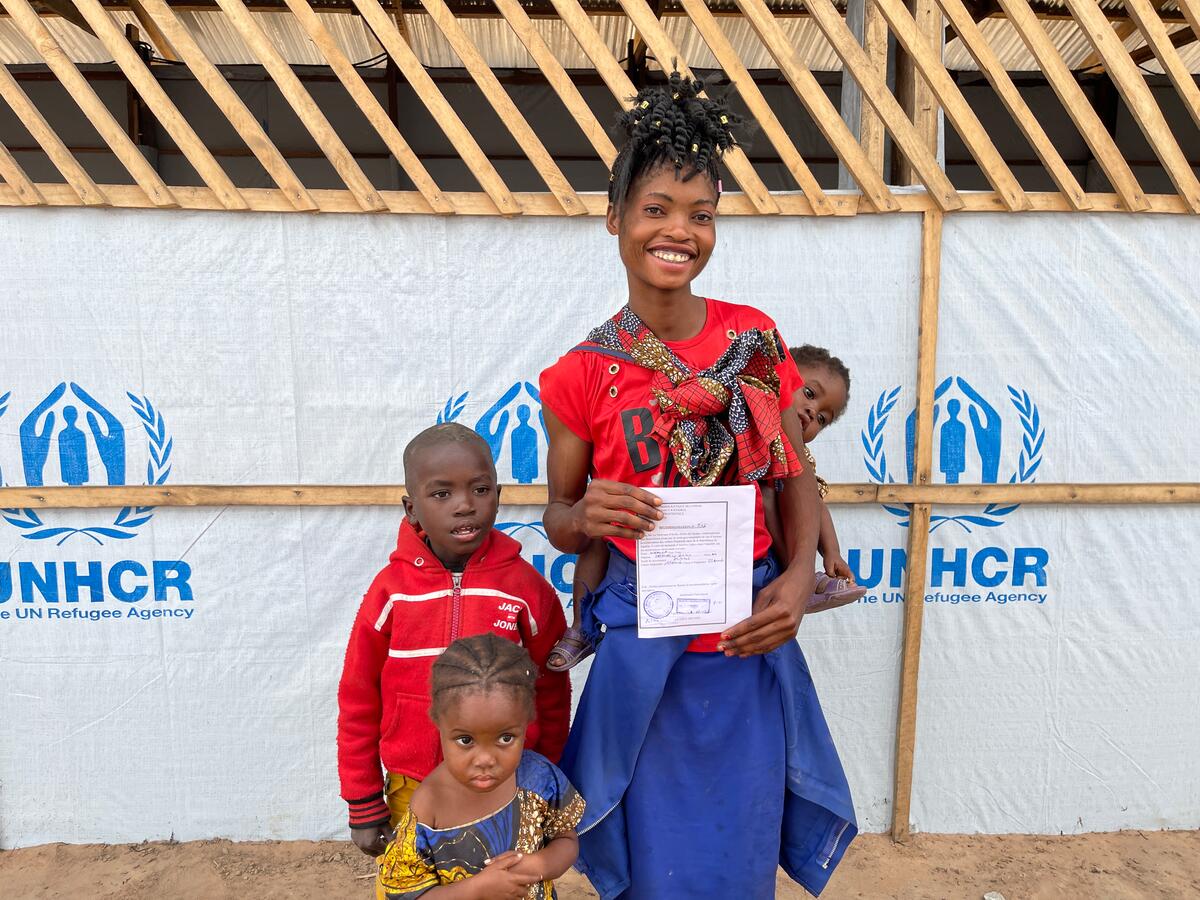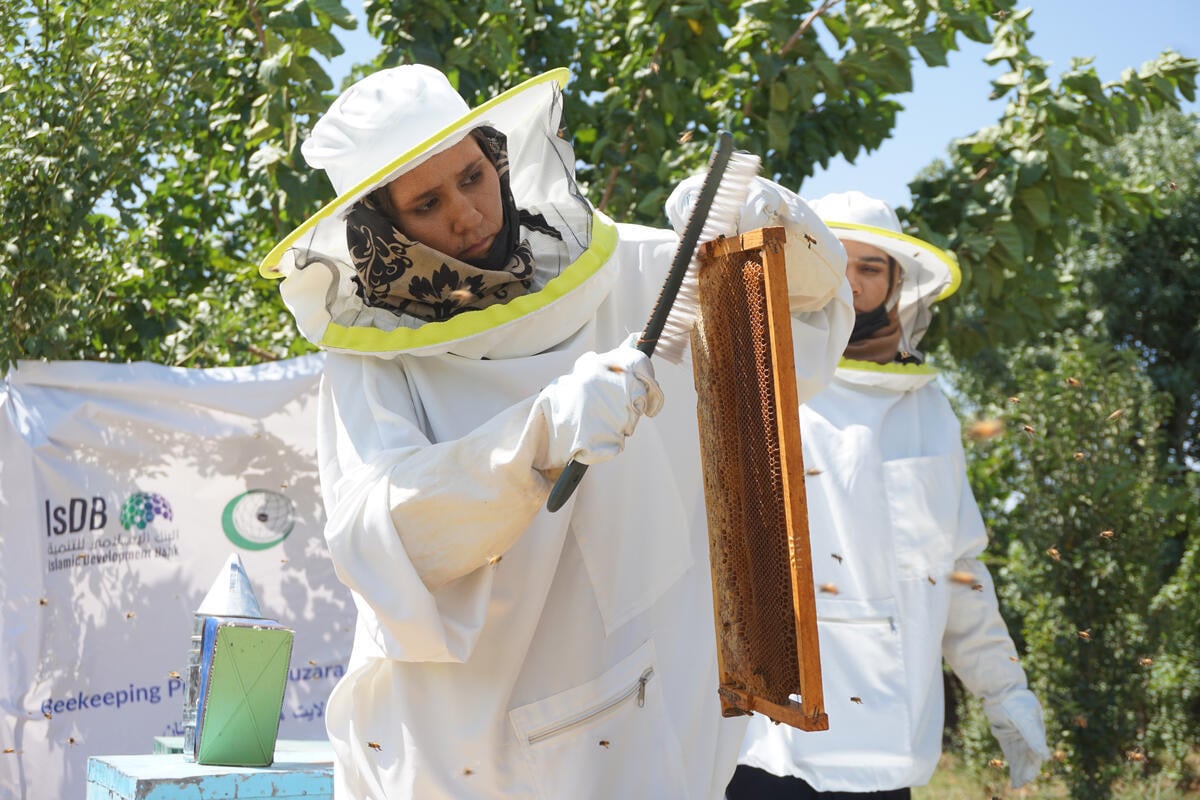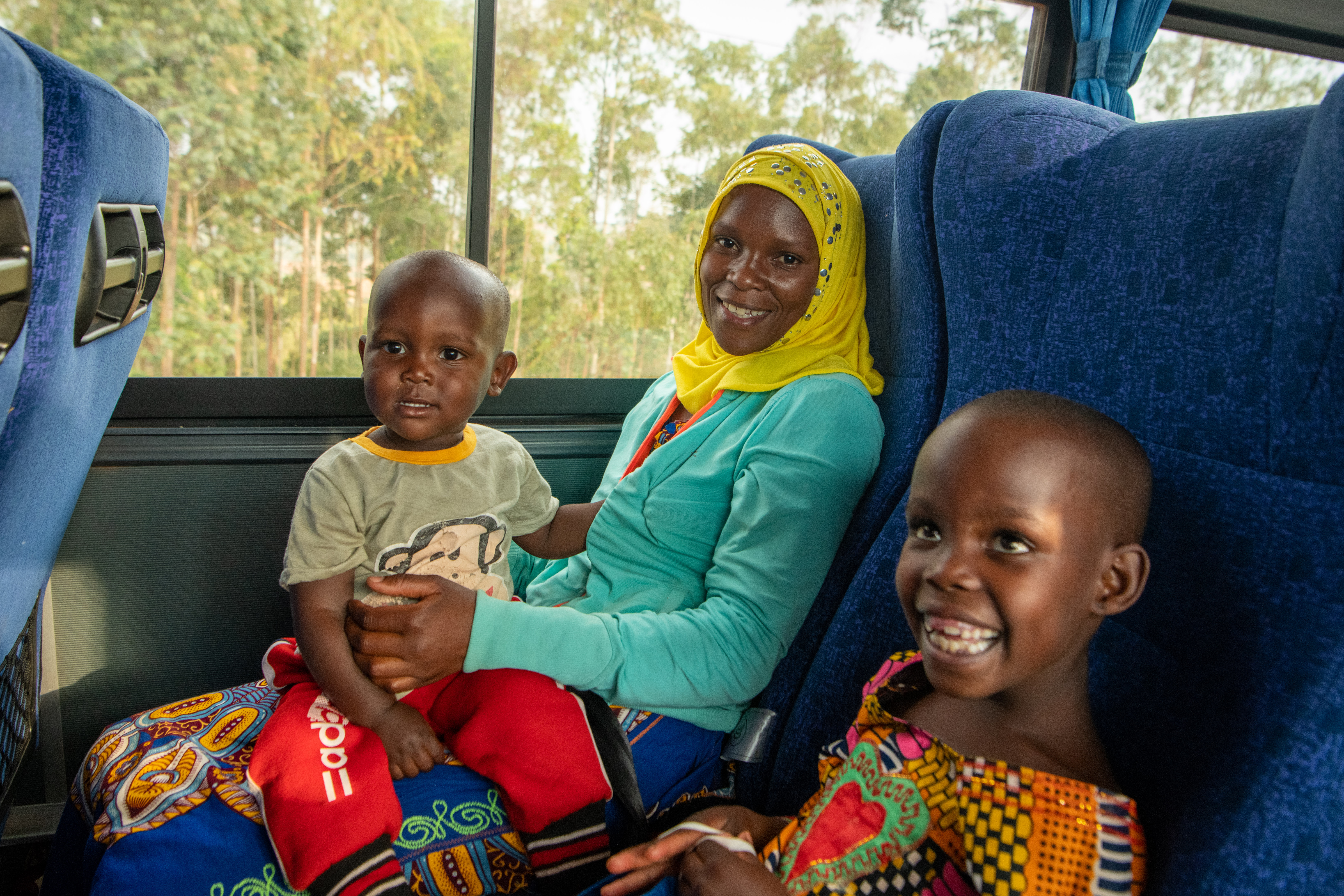UNHCR wraps up one of world's biggest IDP operations in Uganda
UNHCR wraps up one of world's biggest IDP operations in Uganda

GULU, Uganda, January 6 (UNHCR) - Lucky David Wilson was born in a war zone in troubled times, but somehow manages to live up to his name.
As a boy, he fled attacks on his village of Guru Guru when northern Uganda became the frontline in the battle between the Ugandan army and the rebel Lord's Resistance Army. Now 19, he has become a popular singer who uses music to advocate for peace and reconstruction in his homeland.
Wilson is a symbol of the new north, where relative peace has returned since the signing of a cease-fire agreement in 2006.
UNHCR opened an office the same year in the northern town of Gulu to manage 251 camps and provide protection to an estimated 1.84 million internally displaced people (IDPs) in 11 districts. Since then, more than 1.8 million have returned home on their own. To ensure sustainable returns, the UN refugee agency worked with the local authorities to provide basic services in home villages. This involved building community access roads, police posts, schools, health centres and clean water sources and putting in place a public administration infrastructure.
UNHCR also engaged agencies such as the Food and Agriculture Organization, USAID, Care, World Vision and the Northern Uganda Social Action Fund II for longer-term development in areas of return.
"This is a happy day for all," said UNHCR Representative in Uganda, Kai Nielsen, as he closed the Gulu office last week. "Together with the government and aid agencies, we've managed to find solutions to one of the world's biggest IDP crises and help hundreds of thousands of Ugandans to go home."
While most of the IDPs made their own way home, some needed extra support. UNHCR and partners helped 11,600 of the most vulnerable IDPs and returnees by ensuring legal access to land and engaging the community to build huts and latrines. They were also given a start-up kit with blankets, jerry cans, sleeping mats, and kitchen sets, as well as an income safety net with livestock, seeds and tools.
Achan Katherine is one of the beneficiaries. Physically disabled and facing mobility problems, she has chosen to stay at the Unyama trading centre, a former IDP camp. UNHCR worked with the National Union for Disabled Persons in Uganda (NUDIPU) to assess the needs of people like her, and recently distributed wheelchairs to disabled people in Gulu district together with the Association for Volunteers in International Service (AVSI).
Wheelchairs, tricycles, white canes and crutches were designed and built locally by the Gulu Youth Development Association to create jobs, develop skills among the youth and to make the devices available to the greater community.
Katherine, who had been moving on her hands for years, was delighted with her new wheelchair. "Now I can move around my compound on my own and visit friends," she said in her native Acholi-Luo tongue. "Agencies need to continue this kind of help."
She was doubly excited when Lucky David turned up for the distribution and asked her to appear in the music video for his new hit song Roco Gang (Rebuilding Home). Her relatives and neighbours danced around her as he sang his song encouraging youth to support the vulnerable and elderly within their own communities.
"In our culture, when you do things like helping those who are disabled or having problems, the whole community is appreciative," said Lucky David, who is now based in Gulu town. "I'm so happy to be given the chance to spread these messages."
Today, some 30,000 Ugandans remain displaced in northern Uganda, living in four remaining camps, as well as former camps-turned-trading centres and transit sites. More than 6,000 have settled locally. Their need for assistance and protection has diminished as the communities work with aid agencies and the local government to develop and stabilize the region.
The Lord's Resistance Army, however, continues to terrorize civilians in neighbouring countries such as the Central African Republic, the Democratic Republic of the Congo and South Sudan.
By Stephanie Perham, in Gulu, Uganda








